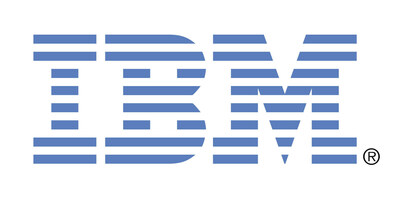IBM Study: As CEOs Race Towards Gen AI Adoption, Questions Around Workforce and Culture Persist
Rhea-AI Summary
IBM's latest study reveals that CEOs are rapidly adopting generative AI, facing workforce and cultural challenges. Of the 3,000 CEOs from 30+ countries surveyed, 64% indicate that AI success depends on people's adoption, not just technology. However, 61% are pushing for faster implementation than some employees are comfortable with. Nearly half are hiring for new AI roles, but 56% haven't assessed AI's workforce impact. 47% foresee workforce reduction or redeployment due to AI in the next year. The study highlights the need for a cultural shift, with 57% of CEOs valuing cultural change over technical challenges for becoming data-driven. Governance is critical, yet only 39% have good AI governance. CEOs aim for innovation, but focus on short-term targets may hinder long-term progress.
Positive
- 51% of CEOs are hiring for generative AI roles that did not exist last year.
- 40% of CEOs plan to hire additional staff due to generative AI.
- 63% of CEOs believe their teams have the skills to incorporate generative AI.
- 81% of CEOs say inspiring their team with a common vision produces better outcomes.
- CEOs rank product and service innovation as their top priority for the next three years.
- 67% of CEOs believe productivity gains from automation are significant enough to accept risks.
Negative
- 61% of CEOs are pushing AI adoption faster than employee comfort levels.
- 56% of CEOs have not assessed the impact of AI on their workforce.
- 47% of CEOs expect to reduce or redeploy their workforce due to AI.
- 53% of CEOs are struggling to fill key technology roles.
- Only 39% of CEOs have good generative AI governance in place.
- A majority of CEOs point to short-term performance focus as a barrier to innovation.
- 64% of CEOs are funding AI investments by reducing spend in other technology areas.
News Market Reaction 1 Alert
On the day this news was published, IBM gained 0.42%, reflecting a mild positive market reaction.
Data tracked by StockTitan Argus on the day of publication.
- More than half of CEO respondents say they are pushing their organization to adopt gen AI more quickly than some employees are comfortable with
- Half of CEOs surveyed say they are hiring for gen AI-related roles that didn't exist last year, but more than half have not yet assessed the impact of the technology on their workforce
The annual global study* of 3,000 CEOs from over 30 countries and 26 industries found that
The findings also revealed that nearly two-thirds (
"There is incredible excitement around generative AI, and CEOs want to move beyond the AI hype to deliver business impact. Yet, without the right people and culture in place, progress will be slow," said Matt Candy, Global Managing Partner, IBM Consulting. "As they embed generative AI in their enterprise strategy, it's critical that executives build a cultural mindset that fosters adoption and lead people through the changes."
Other key study findings include:
Workforces are straining under the pressure of generative AI adoption
40% of CEOs surveyed plan to hire additional staff because of generative AI.- Yet, more than half (
53% ) of respondents say they are already struggling to fill key technology roles. - CEOs surveyed say
35% of their workforce will require retraining and reskilling over the next three years – up from just6% in 2021.
CEOs recognize it takes a cultural shift to successfully scale AI, but face organizational collaboration and adoption challenges
65% of CEOs surveyed say their organization's success is directly tied to the quality of collaboration between finance and technology, yet nearly half (48% ) say competition among their C-Suite executives sometimes impedes collaboration.- Most (
81% ) CEO respondents say that inspiring their team with a common vision produces better outcomes. At the same time,37% acknowledge that their employees don't fully understand how strategic decisions impact them. 57% of those surveyed acknowledge that cultural change is more important to becoming a data-driven organization than overcoming technical challenges1.- CEOs cite generative AI adoption as being critical to success, but nearly two-thirds (
64% ) of surveyed CEOs say their organization must take advantage of technologies that are changing faster than people can adapt.
CEOs indicate the benefits of rapid technology adoption outweigh potential risks
- More than two-thirds (
68% ) of CEOs surveyed agree that governance for generative AI must be established as solutions are designed, rather than after they are deployed.- Although
75% of CEOs surveyed say trusted AI is impossible without effective AI governance in their organization, only39% say they have good generative AI governance in place today.
- Although
- At the same time,
62% of CEO respondents say they will take more risk than the competition to maintain competitive edge, with half (51% ) agreeing that the risk of falling behind is driving them to invest in some technologies before they have a clear understanding of the value1.67% of surveyed CEOs say the productivity gains from automation are so great that they must accept significant risk to stay competitive.- While today
71% of surveyed CEOs are no further than generative AI piloting and experimentation,49% expect to be driving growth and expansion by 2026.
Product and service innovation is a top priority, but a focus on short-term targets might be hindering long-term progress
- CEOs surveyed ranked product and service innovation as their highest priority for the next three years – up from sixth place in 2023.
41% of respondents say they are willing to sacrifice operational efficiency for greater innovation.- However, a majority of CEOs surveyed point to a focus on short-term performance as their top barrier to innovation.
- Today, only
36% of the CEOs surveyed are primarily funding their generative AI investments with net new IT spend, with the remaining64% reducing other technology spend1.
To view the full study, including actionable strategies to help organizations navigate the complexity of generative AI adoption, visit: https://www.ibm.com/thought-leadership/institute-business-value/en-us/c-suite-study/ceo
*Study Methodology
The IBM Institute for Business Value, in cooperation with Oxford Economics, conducted interviews with 3,000 CEOs from over 30 countries and 26 industries from December 2023 through April 2024 as part of the 29th edition of the IBM C-Suite Study series. These conversations focused on business priorities, leadership, technology, talent, partnering, regulation, industry disruption and enterprise transformation.
The IBM Institute for Business Value, IBM's thought leadership think tank, combines global research and performance data with expertise from industry thinkers and leading academics to deliver insights that make business leaders smarter. For more world-class thought leadership, visit: www.ibm.com/ibv.
1Unpublished data from the IBM Institute for Business Value 2024 CEO Study
About IBM
IBM is a leading provider of global hybrid cloud and AI, and consulting expertise. We help clients in more than 175 countries capitalize on insights from their data, streamline business processes, reduce costs and gain the competitive edge in their industries. Thousands of government and corporate entities in critical infrastructure areas such as financial services, telecommunications and healthcare rely on IBM's hybrid cloud platform and Red Hat OpenShift to affect their digital transformations quickly, efficiently and securely. IBM's breakthrough innovations in AI, quantum computing, industry-specific cloud solutions and consulting deliver open and flexible options to our clients. All of this is backed by IBM's long-standing commitment to trust, transparency, responsibility, inclusivity and service. Visit www.ibm.com for more information.
Media Contact
Marisa Conway
IBM Communications
conwaym@us.ibm.com
![]() View original content to download multimedia:https://www.prnewswire.com/news-releases/ibm-study-as-ceos-race-towards-gen-ai-adoption-questions-around-workforce-and-culture-persist-302147188.html
View original content to download multimedia:https://www.prnewswire.com/news-releases/ibm-study-as-ceos-race-towards-gen-ai-adoption-questions-around-workforce-and-culture-persist-302147188.html
SOURCE IBM









